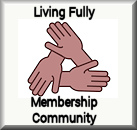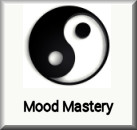Welcome to the first blog for Healthier Marriages. I would like this blog to be somewhere that you can learn information that works practically for increasing the health and satisfaction of your marriage as well as a place that you can comment about your own relationships and develop some community.
The first topic that seems to present itself is, why strive for a healthy satisfying relationship in the first place? Virginia Satir, a well known researcher in couple and family communication found that people everywhere share the same yearnings. Those yearnings are to be loved, to be found lovable, to be accepted and to be validated. We are relational beings. The way that we best find those yearnings met are in committed relationships. When we are known intimately, with all our gifts and challenges and find those yearnings met in relationship, we have a greater expanded sense of ourselves and feel a sense of groundedness and rootedness in that relationship.
A strong reason to develop healthy relationships is the impact they have on us emotionally, intellectually, physically and spiritually. Poor relationships are correlated to depression and anxiety, to poor sleep, to career challenges, to more accidents, illnesses, death and much more. Recently, quantum biology has shown that we are so relational that our cells recognize each other and react vicariously to the moods and stressors of those we are attached to. This means that each person connected to the committed relationship (ie children) are also reacting to our poor relationships with lowered immune systems and distress.
Generally, the opposite of this is also true. For instance, those in long term committed relationships live longer, have less accidents etc. Those in healthy relationships have emotional energy not given to maintaining an unhealthy relationship to give to crafting a great life. Many studies have shown that a good marriage supports each partner’s development in love, family and work, also a great reason for striving for a healthy relationship.
Many people feel that having an expectation of a healthy, satisfying relationship in this culture at this time is a hopeless idea. However, John Gottman, a noted marital researcher found that couples who had high expectations for their relationship, did indeed have better relationships then those who had low expectations. Maybe your expectations for your relationship are somewhere you can start…
What do you think is one of the challenges that most stops you from having a healthier relationship right now?
Be encouraged! Use this information to weave something potentially life giving to your relationship!





